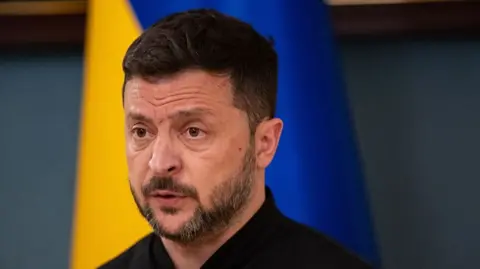🇩🇪 Germany’s New Chancellor Merz Pledges Long-Range Missile Production Support to Ukraine
Berlin, May 28, 2025 – In a striking shift from previous German foreign policy, newly appointed Chancellor Friedrich Merz has announced that Germany will assist Ukraine in producing long-range missiles, signaling a tougher stance on Russian aggression and deeper alignment with Ukraine’s defense efforts.
Speaking alongside Ukrainian President Volodymyr Zelensky at a press conference in Berlin, Merz avoided directly naming the controversial Taurus missile system, but confirmed that a memorandum of understanding on missile production would be signed by both countries’ defense ministries later today.
Key Developments:
- Missile Co-Production Plan: While not explicitly confirming Taurus missiles, Merz emphasized discussions on “long-range missile production” without revealing operational specifics.
- No More Range Limits: He reiterated that Kyiv’s Western allies had already lifted range restrictions on arms provided to Ukraine, distancing his administration from prior hesitations.
- Taurus Missile Specs: With a range of 500 km (310 miles), the Taurus could potentially target deep inside Russian territory—previously a red line for Berlin under former Chancellor Olaf Scholz.
🇷🇺 Kremlin Reaction
- The Kremlin has issued a stark warning, labeling the removal of range restrictions a “dangerous change in policy” and a potential threat to ongoing efforts toward peace.
- Spokesman Dmitry Peskov warned it could “derail any political settlement”, although he did not reject Zelensky’s idea of direct talks involving Trump, Putin, and himself outright.
Zelensky’s Position
President Zelensky:
- Welcomed Merz’s commitment and insisted Ukraine would continue defending itself militarily and diplomatically.
- Proposed a high-level summit with Donald Trump and Vladimir Putin, though Russia insists such a meeting requires pre-negotiated terms.
- Accused Moscow of deliberately stalling peace efforts, referencing delays in delivering a promised memorandum of peace terms following talks in Istanbul.
🇺🇸 US Involvement
- President Donald Trump criticized Putin for “playing with fire” following a deadly missile strike that killed 13 Ukrainian civilians.
- Trump confirmed he had discussed new sanctions on Russia’s banking and energy sectors with Zelensky, pending Russia’s next moves.
- Russian officials accused Trump of lacking full context, heightening tensions between Washington and Moscow.
Escalation on the Battlefield
Ukraine continues facing intense Russian military pressure, especially in the northeast:
- Over 900 drones launched by Russia in a 72-hour span.
- Ukraine’s largest drone barrage yet hit Russian targets overnight.
- More than 50,000 Russian troops are reportedly massing near the Sumy region, with at least four Ukrainian villages seized in recent days.
- Russia claims these actions are part of creating a “security buffer zone.”
Context of the Conflict
- The war has entered its fourth year, with Russia currently occupying around 20% of Ukrainian territory, including Crimea, which it annexed in 2014.
- The latest developments point to both diplomatic posturing and intensified military action as the search for a sustainable peace deal remains elusive.
Strategic Implications
Merz’s move marks a significant pivot in Germany’s approach to the war, aiming to:
- Reassert German leadership in European security affairs.
- Pressure Russia diplomatically and militarily.
- Offer Ukraine greater strategic autonomy through missile production capacity.
In contrast to former Chancellor Scholz’s cautious approach, Merz’s bold policy is likely to reshape Germany’s role in the conflict and draw sharper responses from Moscow.


